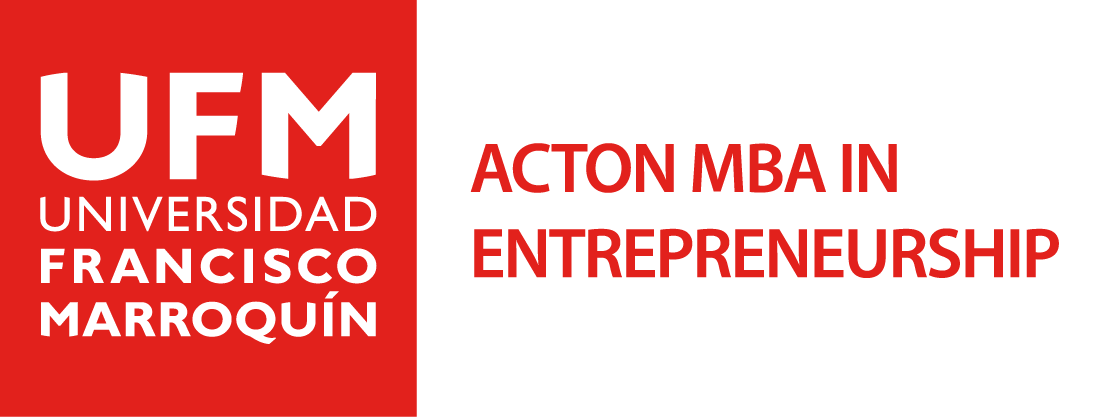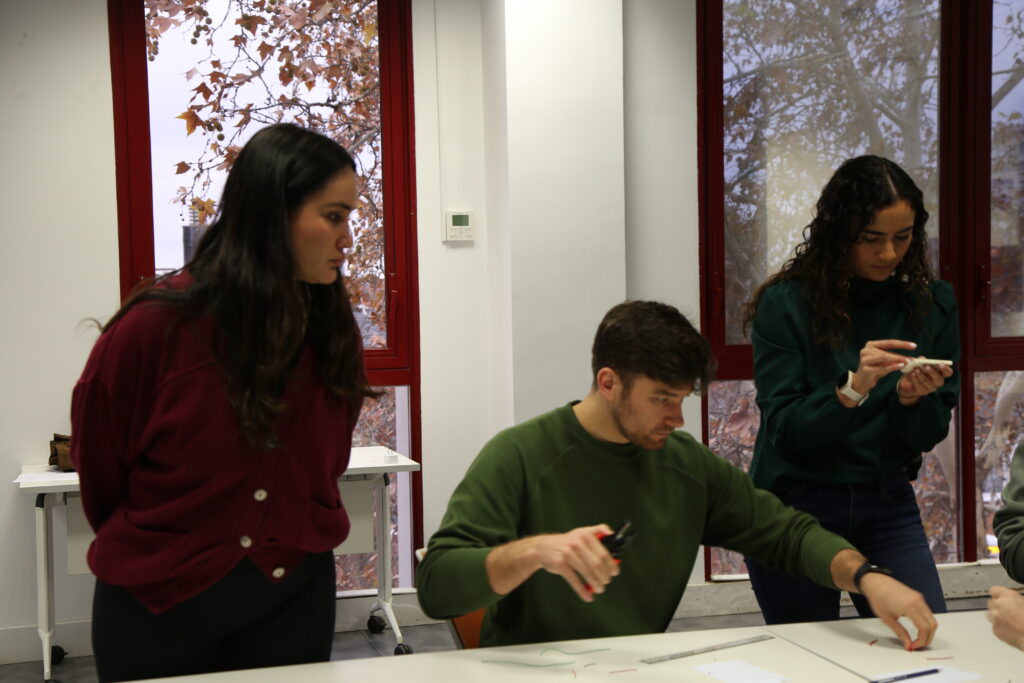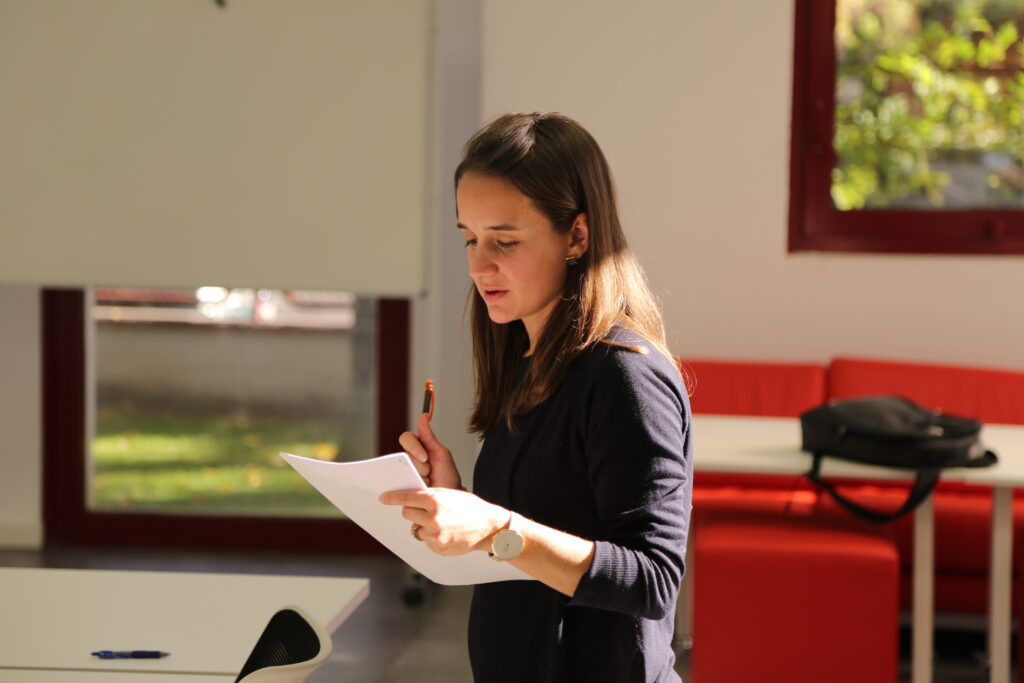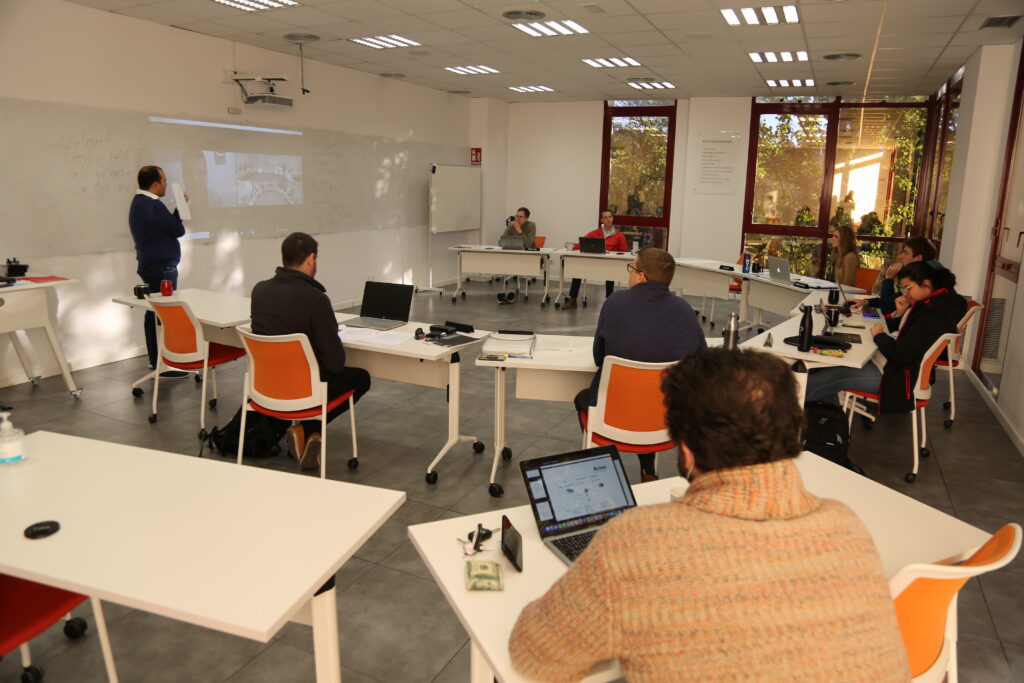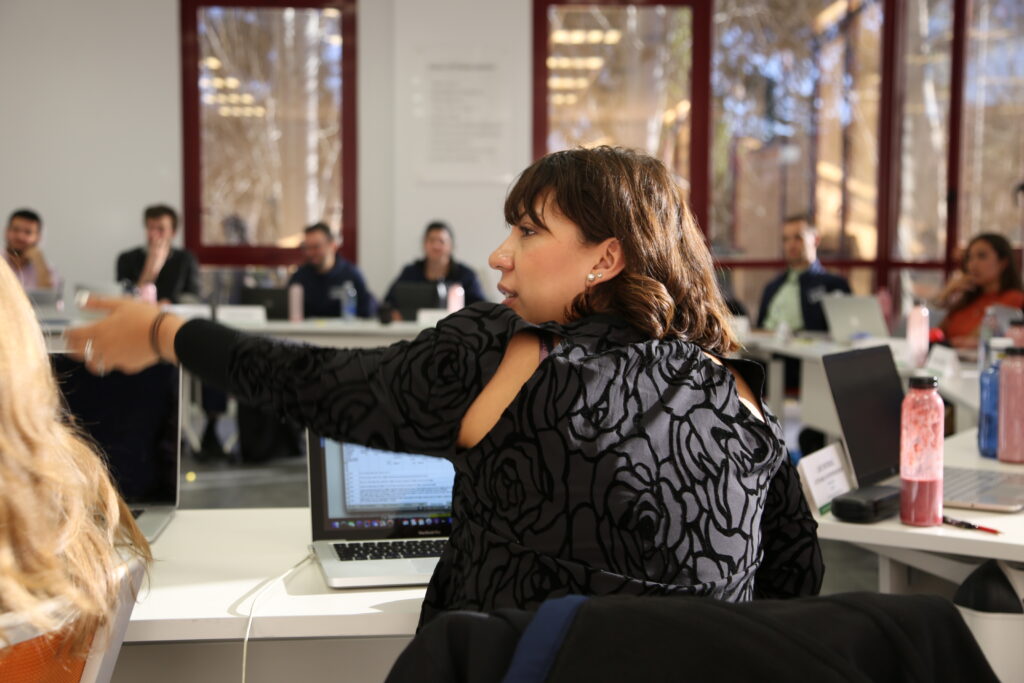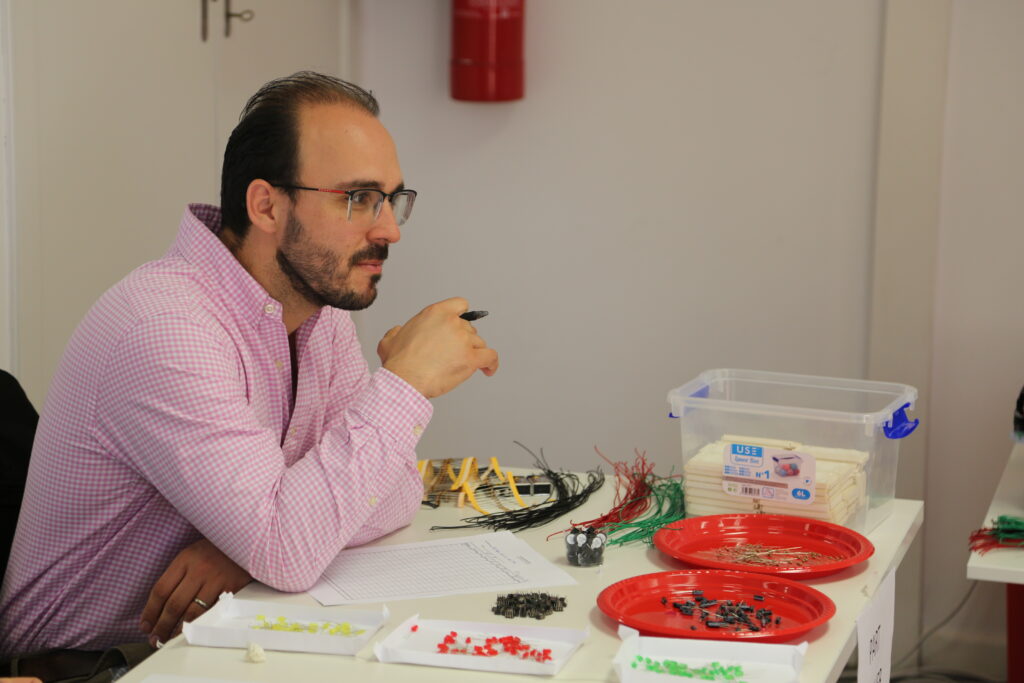So Now You’re an Entrepreneur. What’s Next?
MARCH 4, 2024
There is an Acton Note, written by Acton MBA’s founder, Jeff Sandefer, titled “So You Want to Be an Entrepreneur?” I love the note because it showcases what needs to be done in order to be one. However, I would also like to add something: so now you’re an entrepreneur, what’s next? That’s the question for many of those who are entrepreneurs by chance.
It’s a very different thing when circumstances let you decide to become an entrepreneur, to when life throws entrepreneurship at you. I am an example of the latter. Most of us, when we are young or perhaps once we are someone’s employee, get the emotional question that Jeff’s note sparks. Probably we imagine a light bulb turning on above our heads like magic and presto, we become one.
The success cases such as Edison, Ford, Jobs or Mr. Gates spring to mind. If only it were as simple as that. Though it probably never would have happened that way, I would love to have been the guy who read Jeff’s piece before I became an entrepreneur. I would love to have been one of those cases and had done Acton before I became an entrepreneur. However, life doesn’t play that way always.
There is a group of entrepreneurs that have found themselves needing to become one overnight—entrepreneurs by chance. Be that because life happens, or family situations demand you to become one. Examples like that are everywhere in our society and odds are you haven’t heard of them because they most likely have not become one of the guys I mentioned in the last paragraph.
They haven’t been successful, or famous, they are just struggling because they lack the knowledge of a businessman. They are your neighborhood butcher, the next-door baker, and the pharmacy around the block. They are also the guy who inherits a business because sadly his parents passed away and now he has to deal with something he didn’t ask for. Odds are it is your mom and pop shop, and all those SMBs around you.
For me personally, I was going through a divorce, having to battle moving to a different country, and being unable to find a job. I was backed into a corner and I just knew that I had to put bread on the table (at least in my case, thank God, it was just for me). I haphazardly entered into entrepreneurship not knowing anything about business like many of my peers. Perhaps it is the greatest thing that can happen in someone’s life, to be in that position that urges you to do something out of nothing.
If I could go back, of course, I would love to take my time and go step by step to become an entrepreneur, doing it with purpose. That much I know, even without a business idea at hand. However, life isn’t like that.
Life is a never-ending series of decisions and consequences that, if one is not careful, something, let’s call it chance, goes right by you. Therefore, I believe that help is out there for those of us who have to deal with the challenge, to rise above, and be successful because that’s all we can do to survive. This note is for my peers.
What Is it Like to Be an Entrepreneur by Chance?
In the lamest terms, it is someone who endeavors with something unknown. Webster’s dictionary says it is “one who organizes, manages, and assumes the risks of a business or enterprise”. What is clear is that an entrepreneur must be someone organized, someone with some sense of how to manage things, and someone who assumes the risks of business.
I believe that those of us who became entrepreneurs by chance rather than by choice, we assume the risk because that is a given. However, the skills to organize something out of nothing, especially when you stumble upon an opportunity or market, those skills are something that rarely come along in the same package, or at least, they are not natural skills to all.
Many of us at Acton would probably say that a person who is right for launching a business might not be a person who can manage to grow that business, and probably isn’t the same person who can sell that business. I personally found myself there, not being the right person to grow my business back then when I got it.
It took me years of head scratching and gut punches to learn how to grow my business, and even then, I probably couldn’t articulate why it was growing and why it stopped growing when it did. This probably isn’t the only reason why I enrolled in Acton MBA, but it’s probably baked within there. And this is probably one of the toughest problems the entrepreneur by chance has to face.
To be an entrepreneur by chance is to become someone who is able to launch a business with some degree of success. But we are probably not the right people to drive business growth to the next step. I believe this is the case because launching a business is all work and immediate gain when you can serve one customer at a time. That immediate gratification and response from the first customers is one of the drives that the launching entrepreneur and the entrepreneur by happenstance share in common. However, the entrepreneur by choice will be rather careful with the next step.
The entrepreneur with knowledge will observe what’s the current offer and the clients’ needs, and will then go on to construct a process or pipeline to deliver more to the customers. That is, take away from that instant gratification to build a system that takes the business to the next level.
The entrepreneur by chance, will probably grow his/her business in the very same way he started it . . . by chance. This is at direct odds with what we at Acton call the growth framework. As the name implies, to grow, we must become consistent and consequent with the decisions we can take to do it. The entrepreneur by chance, as organized as he may be, might not be that insightful. This is the Achilles’ heel. The barrier to growth.
The entrepreneur becomes his own worst enemy by the same force that led him there, a lack of knowledge of the opportunities and systems needed. The entrepreneur by chance, sadly, must learn to be an entrepreneur by choice if he is to grow someday. The entrepreneur by chance must become someone else.
Knowledge as a Barrier or an Asset to Growth
I personally believe that knowledge is necessary for growth. Without knowledge of clients and their needs, it is impossible to have a business, and by that same logic it is impossible to grow without knowledge. Also, I believe it is my mission in life to pass knowledge onto others because this drives growth and growth drives opportunities for families.
This is all too personal to me, as I have a passion for helping others. But I must acknowledge that without the proper skillset (intentionally acquired or not) it is highly unfeasible to grow a business. I would like to share with the reader a bit of what I’ve learned over the nine years I’ve been a full-time entrepreneur.
In order to grow, processes, processes, and processes are the only way up for an entrepreneur by chance. The entrepreneur by chance needs to take time every day, be that five minutes, ten, or an hour, and have a moment of self-reflection to be able to identify what are the client’s needs and what the client is buying from the business. The entrepreneur by chance might be a solopreneur, but still he needs to identify his processes, looking at which of them can be delegated and which cannot. Usually, it starts with either operations or sales, but in my experience, when problems arise, they come from a lack of understanding that some other process is needed such as accounting and people management.
Be that as it may, my gut tells me that if you are reading this and you are an entrepreneur by chance, you are not thinking about research and development as your next big milestone after selling to a client. What you should be thinking about is: at this stage, how do I get the right people on the bus, with my current resources (or lack thereof) in the right place? And how do I learn the next process?
The sooner the entrepreneur endeavors to learn, be that, from his clients, his business, his industry, his processes and people, the better the chance the entrepreneur will have with his business. The sooner this happens, the sooner the entrepreneur goes from an entrepreneur by chance into an entrepreneur by choice.
How can someone speed this process up?
The easy answer, ask a consultant, I mean, that is what I do for a living. Outsourcing this to build it into your business will probably be A LOT easier than doing it yourself from scratch.
The hard answer?
Well, you should probably start building up that knowledge base that Jeff Sandefer mentions in his note: In-depth knowledge of the competitive structure of an industry, knowledge of how to run the operations, or knowledge of how to raise capital. Of the three, I would recommend going for the first two.
So Now You’re an Entrepreneur by Choice, What’s Next?
Build your own frameworks. At Acton, we love them because they work. What is a framework you ask? A series of questions (sometimes impossible to answer) that direct your brain to what you should be putting attention to. The better you can answer the questions the easier you can move to the next matter at hand in your business.
How frequently should you look at your framework and your processes in order to keep yourself on track? That question in my experience as a consultant, is one that will probably vary from person to person and from business to business.
But my rule of thumb as an entrepreneur by chance is that you want to become VERY structured from having almost none. That would suggest to me that you need to look at your framework at least daily (for operations/growth) and the general business once a week or month. Perhaps in another note I can elaborate on how to build one from scratch.
By Levent Asanoski.
Entrepreneur by chance, business consultant by choice, engineer to the bone. I’m a sponge for business and process knowledge, passionate for numbers and facts. I’ve been a business consultant for the past fifteen years in several industries.

Levent Asanoski
